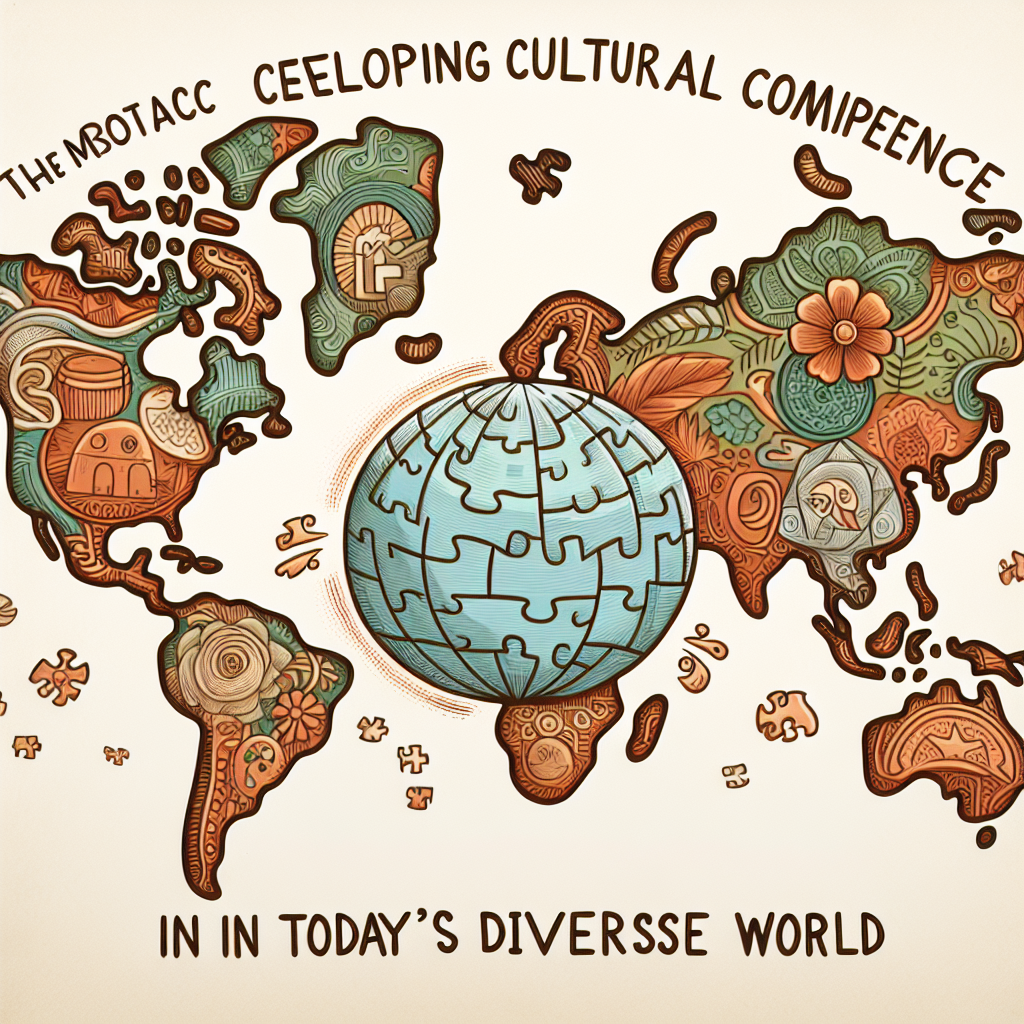In today’s globalized and interconnected world, cultural competence has become an essential skill for individuals and organizations to navigate the diverse landscape of our society. With increased migration, communication, and collaboration across different cultures, having a deep understanding and respect for different beliefs, values, and practices has never been more important. Cultural competence goes beyond simply being aware of different cultures; it involves actively seeking to understand, appreciate, and adapt to diverse perspectives and behaviors. In this article, we will explore the significance of developing cultural competence in today’s diverse world and its impact on personal and professional relationships.
Cultural competence refers to the ability to interact effectively with people from different cultural backgrounds, recognizing and respecting their beliefs, values, and behaviors. It goes beyond surface-level knowledge of customs and traditions and requires a deep understanding of the historical, social, and political contexts that shape a culture. Developing cultural competence involves being open-minded, curious, and empathetic towards others, and actively seeking to bridge the gaps of misunderstanding and miscommunication that often arise when different cultures interact.
One of the key reasons why cultural competence is crucial in today’s world is the increasing diversity of our communities. In many countries, cities, and workplaces, people from different cultural backgrounds come together to live and work. Without cultural competence, misunderstandings, conflicts, and biases can arise, leading to strained relationships and hindered productivity. By developing cultural competence, individuals and organizations can create inclusive environments where everyone feels respected, heard, and valued.
Cultural competence also plays a vital role in fostering mutual understanding and collaboration across borders. In an era of globalization, where businesses, governments, and organizations operate on a global scale, the ability to navigate cultural differences and build relationships with people from diverse backgrounds is essential. By developing cultural competence, individuals can bridge cultural divides, build trust, and establish meaningful connections with people from different parts of the world.
Furthermore, developing cultural competence can lead to personal growth and self-awareness. By stepping outside of one’s comfort zone and engaging with different cultures, individuals can gain a broader perspective on the world and challenge their own biases and assumptions. This process of self-reflection and introspection can lead to greater empathy, tolerance, and acceptance of others, ultimately creating a more harmonious and inclusive society.
In the workplace, cultural competence is increasingly recognized as a valuable skill that can enhance teamwork, communication, and productivity. Organizations that prioritize diversity and inclusion are more likely to attract top talent, improve employee satisfaction, and drive innovation and creativity. By fostering a culture of cultural competence, organizations can create a more collaborative and supportive work environment where employees from different backgrounds can thrive and contribute their unique perspectives and experiences.
Despite the numerous benefits of developing cultural competence, many individuals may still have questions or misconceptions about what it entails and how to cultivate this skill. In the following FAQs section, we will address some common questions about cultural competence and provide practical tips for enhancing cultural awareness and understanding.
FAQs:
Q: What is the difference between cultural competence and cultural sensitivity?
A: Cultural competence goes beyond cultural sensitivity, which involves being aware of and respecting different cultural norms. Cultural competence requires a deeper understanding and appreciation of the historical, social, and political contexts that shape a culture, as well as the ability to interact effectively with people from diverse backgrounds.
Q: How can I develop cultural competence?
A: Developing cultural competence involves being open-minded, curious, and empathetic towards others. To enhance your cultural awareness, consider reading books, watching films, attending cultural events, and engaging in conversations with people from different backgrounds. It’s also important to reflect on your own biases and assumptions and be willing to challenge them.
Q: Why is cultural competence important in the workplace?
A: In the workplace, cultural competence can enhance teamwork, communication, and productivity. By fostering a culture of diversity and inclusion, organizations can create an environment where employees from different backgrounds feel valued, respected, and empowered to contribute their unique perspectives and experiences.
Q: How can organizations promote cultural competence?
A: Organizations can promote cultural competence by providing training and resources on diversity and inclusion, establishing diversity committees or affinity groups, and fostering a culture of open communication and respect. It’s also important for leaders to prioritize diversity and inclusion in their policies and practices.
In conclusion, developing cultural competence is essential in today’s diverse world for building relationships, fostering understanding, and promoting inclusion. By actively seeking to understand and appreciate different cultures, individuals and organizations can create a more harmonious and interconnected society where everyone can thrive and contribute their unique perspectives and experiences. By embracing cultural competence, we can build a more tolerant, empathetic, and inclusive world for future generations to come.





Leave A Comment